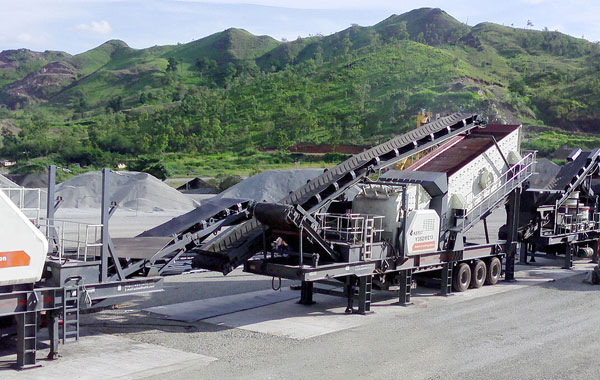A limestone mobile crushing plant serves as a key element in mining operations and construction projects, where limestone is a crucial material. Limestone, renowned for its versatility and durability, finds application in various industries, including construction, agriculture, and manufacturing. With its abundance and widespread distribution, limestone mining and processing have become vital components of economic development globally.
Introduction to Limestone Mobile Crushing Plant
A limestone mobile crushing plant is a specialized machinery designed to crush limestone into smaller sizes for various applications. It typically consists of a primary crusher, secondary crusher, vibrating screen, conveyors, and control system. The primary crusher, often a jaw crusher or gyratory crusher, breaks the raw limestone into manageable sizes. The secondary crusher further reduces the limestone into finer particles, ensuring the desired product specifications are met.

Advantages of Mobile Crushing Plants
- Mobility: Unlike stationary crushing plants, mobile crushing plants offer unparalleled mobility, allowing operators to move the equipment easily between different sites. This mobility enhances efficiency by minimizing transportation costs and reducing downtime associated with relocating fixed plants.
- Flexibility: Limestone mobile crushing plants are highly adaptable and can be customized to meet specific project requirements. Operators can adjust the crushing process parameters to produce different grades of limestone products, catering to diverse market demands.
- Cost-effectiveness: Mobile crushing plants offer cost-effective solutions for limestone processing, enabling companies to optimize their operations and achieve higher profitability. By reducing the need for expensive infrastructure and streamlining production processes, mobile plants help minimize operational expenses.
- Versatility in Application: Limestone mobile crushing plants are highly versatile and can be used in a variety of applications within the construction and mining industries. Whether it’s crushing limestone for road base material or producing aggregates for concrete production, these plants can adapt to different requirements, making them invaluable assets on job sites.
Applications of Crushed Limestone
- Construction: Crushed limestone serves as a versatile construction material used in road base, concrete aggregates, and asphalt pavement. Its excellent load-bearing capacity and durability make it an ideal choice for constructing roads, highways, and building foundations.
- Agriculture: Agricultural lime, derived from crushed limestone, is a vital soil amendment used to neutralize acidity, improve soil structure, and enhance crop productivity. Farmers apply limestone to fields to balance soil pH levels and provide essential nutrients for plant growth.
- Manufacturing: Limestone serves as a raw material in various manufacturing industries, including cement, steel, and glass production. Crushed limestone is used to produce cement clinker, which forms the basis of Portland cement, the most widely used construction material globally.
In conclusion, a limestone mobile crushing plant plays a pivotal role in mining and construction activities by efficiently processing limestone into various products for diverse applications. Its mobility, flexibility, and cost-effectiveness make it an indispensable asset for companies seeking to optimize their operations and meet market demands. As technology continues to evolve, mobile crushing plants will likely play an increasingly prominent role in the future of quarrying.
